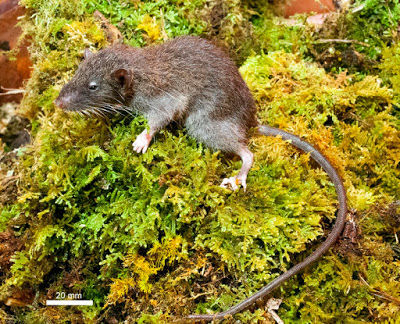New Species Discovery!
- Tiger Liu
- Dec 5, 2017
- 2 min read
Entirely Indiscriminate Rat Will Eat Anything!
As we all know, rats can only normally eat raw meat, fish and some insects, generally being carnivores. Only a few will really eat anything; and I mean ANYTHING!
This new rodent (Gracilimus radix) was so rare it needed its own separate step of taxonomic rankings just above “New Species”. This change of classification occurs very rarely, but this particular rodent’s anatomy was vastly different from that of other wild rats. So far this species was, and can only be found, in the thick forests at the slopes of Mount Gandang Dewata on Sulawesi Island. This furry and slender fluffball loves the forest climate and seeks food amongst the deep tree roots of Indonesia, avoiding discovery by hiding and building homes in them.

"This marks the third new genus and fourth new species discovered there in the last four years."
- Kevin Rowe, a biologist from Museum Victoria in Melbourne, Australia
Kevin Rowe and his crew of scientists were doing mammal surveys in 2011 and 2012 when they found this new species of forest rat. “Will. Eat. Anything” was the scientist’s explanation for the omnivorous rat.
Seemingly similar to the “Indonesian Water Rat”, scientists came up with a brilliant theory on how the Water Rat had “long lost cousins”. Assuming that mammals have appeared in the late Triassic (before the meteor), the rats all lived and were classed together, as one single species. However, after the crisis that pretty much wiped out entire life on Earth, some of the rats took shelter in logs toppled across the water instead of under the earth or under the deep roots of certain prehistoric trees. Since (theoretically) the asteroid that hit the Earth landed somewhere near the Gulf of Mexico, which is basically the other side of the Earth to Indonesia, both species survived the impact that caused world devastation. I personally find this very interesting and a great theory for the discovery of the new species. Well, that’s it for this species report! Thanks for reading, and until we meet again in time for the next species report!

Comments